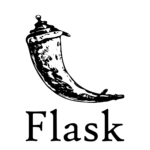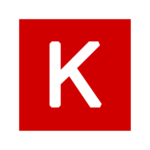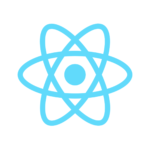This month, we welcomed our inaugural class to the MLH Fellowship, powered by GitHub (make sure to check out their blog post on the Fellowship). In recent months, we have seen COVID-19 affect not only our community but the world. We’ve seen thousands of students lose their internships and jobs. Motivated by our mission to empower hackers, we decided to create an alternative to an internship program for students worldwide. This is where the idea for the MLH Fellowship started.
Thanks to the help of our incredible sponsors GitHub, Facebook, The Royal Bank of Canada, DEV.to, Ovio, Amazon Web Services, PlutoVR, New York City Tech Talent Pipeline, Twilio, Indeed, Interhacktive, and Techtonica, we are able to support over 100 MLH Fellows.
This summer, MLH Fellows will be contributing to open source projects used by hackers and companies worldwide with the mentorship of professional software engineers. The 150 Fellows come from 20+ countries in 15 different time zones and are working on 30+ open source projects. Each project is one the MLH team agrees they’d be excited to contribute to and here is what our MLH Fellows have to say so far.
“MLH is not only providing me the opportunity to work on the projects I admire but also providing top-notch mentors who are so helpful and knowledgeable. The prime reason behind applying for MLH fellowship was the mentorship and a chance with which I can learn and grow infinitely. Getting into such a prestigious program I can learn a lot and have a productive summer which will help me build a better future. These 3 months can help me improve the next 30 (at least) years of my career.” – Yashika Sharma, Delhi, India
“After losing my internship due to the lockdown in my country, I decided to contribute to open-source projects during the summer. Then, I heard about the amazing MLH Fellowship program, which brought together a community of hackers and mentors to work on open-source projects. This was an incredible opportunity for me to collaborate with other hackers and improve our software engineering skills together.” – Teik Jun, Singapore
“I was initially looking for an internship for the summer but stumbled upon this fellowship, which appeared to actually be much more useful. Being a Fellow, I am able to learn a wide array of skills with a team of like-minded geniuses around the globe, and all with my decisions and opinions in mind. That beats a desk job any day.” – Edaline Engmann, Austin, Texas
Already the MLH Fellowship is off to a strong start, to gain familiarity with their projects MLH Fellows participated in our Orientation Hackathon. The winner, Execute.ly, made it possible to run code handwritten for class and used two MLH Fellowship projects: React and Flask.
While MLH Fellows will be gaining valuable skills in the program, developers worldwide are likely to benefit too. The projects the MLH Fellows will be contributing to are used by millions of developers around the world. To get a picture of the impact they’ll be having, check out a few of the projects summarized below and a complete list of all the projects.
HTTPie (pronounced aitch-tee-tee-pie) is a command line HTTP client. Its goal is to make CLI interaction with web services as human-friendly as possible. It provides a simple http command that allows for sending arbitrary HTTP requests using a simple and natural syntax, and displays colorized output. HTTPie can be used for testing, debugging, and generally interacting with HTTP servers.
Flask is a lightweight WSGI web application framework. It is designed to make getting started quick and easy, with the ability to scale up to complex applications. It began as a simple wrapper around Werkzeug and Jinja and has become one of the most popular Python web application frameworks. Flask offers suggestions, but doesn’t enforce any dependencies or project layout. It is up to the developer to choose the tools and libraries they want to use. There are many extensions provided by the community that make adding new functionality easy.
Keras is a high-level neural networks API, written in Python and capable of running on top of TensorFlow, CNTK, or Theano. It was developed with a focus on enabling fast experimentation. Being able to go from idea to result with the least possible delay is key to doing good research. Use Keras if you need a deep learning library that allows for easy and fast prototyping, supports both convolutional networks and recurrent networks, and runs seamlessly on CPU and GPU.
React Native brings React’s declarative UI framework to iOS and Android applications. With React Native, you use native UI controls and have full access to the native platform. With React Native’s declarative views, you can make your code more predictable and easier to debug. You can build encapsulated components that manage their state, then compose them to make complex UIs. React Native is developed and supported by many companies and individual core contributors.
Follow our MLH Fellows on the MLH Fellowship GitHub Organization to see all they’re able to achieve this summer and the impact they’ll have on the open source ecosystem, all while learning the skills to be professional software engineers.
Want to get involved?




